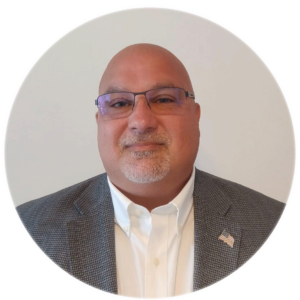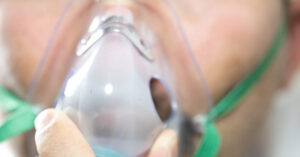Every year, respiratory fraud quietly siphons billions of dollars from the healthcare system. While its impacts are enormous, it often goes undetected by those in the industry. For healthcare professionals, the ability to recognize fraudulent practices can play a significant role in protecting patients, maintaining ethical standards, and preserving public funding.
This article aims to define respiratory fraud, highlight where it commonly occurs, and guide healthcare professionals on what to look for and how to take appropriate action.
What Is Respiratory Fraud?
Respiratory fraud refers to dishonest billing and other deceptive sales practices related to respiratory care. These actions place unnecessary financial strain on patients, insurers, and public programs, and they erode confidence in the healthcare system.
Understanding what constitutes fraud allows healthcare professionals to recognize questionable behavior and safeguard the integrity of care. The harm lies not only in financial exploitation, but also in the misuse of resources that could otherwise benefit those in genuine need.
Common Types of Respiratory Fraud & What to Watch For at Work
Healthcare professionals frequently witness the kinds of activities that suggest fraudulent practices, often without realizing what they are seeing. Below are several common types of respiratory fraud and signs to watch for in professional settings.
- Fraudulent Billing Practices
Changes in billing patterns are often the first sign of respiratory fraud. Billing monthly for rental equipment or supplies that are no longer being used by a patient is a violation of Medicare regulations. Medicare Policy A55426 states: “Suppliers are responsible for monitoring utilization of DMEPOS rental items and supplies. Suppliers must discontinue billing Medicare when rental items or ongoing supplies are no longer being used by the beneficiary.” This policy also states that “the info in this document supersedes the material currently contained in all LCDs & related policy articles”.
- Kickbacks
Any payment to or from durable medical equipment (DME) companies in exchange for inducing business or medical referrals may constitute an illegal kickback. A kickback refers to anything of value provided in return for business or referrals. For example, a respiratory manufacturer offering free prescriptions, data, or free continuing education unit (CEU) courses to a DME dealer could violate the Anti-Kickback Statute (AKS). Similarly, providing services at below fair market value to secure business is another form of illegal kickback. These practices undermine fair competition and can lead to serious legal consequences.
- Falsified Patient Records
Another red flag is the alteration or creation of false records to justify claims. For instance, supervisors may encourage staff to exaggerate patient needs to fit criteria for expensive reimbursements. This can include overstating symptoms or documenting nonexistent conditions.
- Unmatched Patient Services
A clear signal of fraud involves services performed that do not reflect patient needs. For example, treatments being administered to patients who lack qualifying symptoms.
- Unexpected Instructions from Leadership
Workers may feel pressured to enter inaccurate information into documentation or observe management encouraging team members to cut procedural corners. Similarly, an unusually high focus on coding or billing that seems driven by quotas or revenue rather than patient outcomes, can indicate systemic issues.
Why Reporting Fraud Matters
When fraud occurs in respiratory care, its effects ripple far beyond the initial act. First and foremost, patients may be harmed when they receive unnecessary or inappropriate medical interventions. Beyond this, the financial drain on public insurance programs—including Medicare and Medicaid—places added burdens on taxpayers.
Healthcare workers are uniquely positioned to shield patients and public resources by reporting fraud. By sharing their observations and concerns, they help create a fairer and safer system for everyone involved. Not only is this an ethical responsibility, but whistleblowers may also be eligible for financial rewards. Under the False Claims Act, individuals who report fraud can receive up to 30% of the recovered funds
How to Report Respiratory Fraud
Recognizing the signs of fraud is only the first step. Taking action is equally important. Here’s how healthcare workers can report their concerns securely and effectively:
- Document What You Observe. Keep detailed written records of practices that seem suspicious. Note patterns, dates, and frequencies, as well as any pertinent verbal or written instructions. These notes will be critical if an investigation takes place.
- Consult Trusted Resources. Contact a whistleblower attorney experienced in healthcare fraud. They can guide you through the process and ensure your concerns are handled appropriately. Further, your confidentiality will be protected under federal law, allowing you to act without apprehension.
Preventing Healthcare Fraud in Respiratory Care
Fraud in respiratory care is preventable, but it requires the courage and vigilance of those who experience it firsthand. By understanding what respiratory fraud looks like and taking steps to report it, healthcare workers can improve the quality and integrity of care provided to patients.
If you suspect fraudulent practices, don’t hesitate to act. Contact the DJO Whistleblower Law Group today for a free, confidential consultation. Our contingency-based service means you’ll never pay out of pocket, and your information could result in a potential reward of up to 30% of any government recovered funds.
Together, we can create a healthier, more ethical healthcare system.

authored by Christopher J. Piacentile
Director of Investigations DJO Whistleblower Law Group


